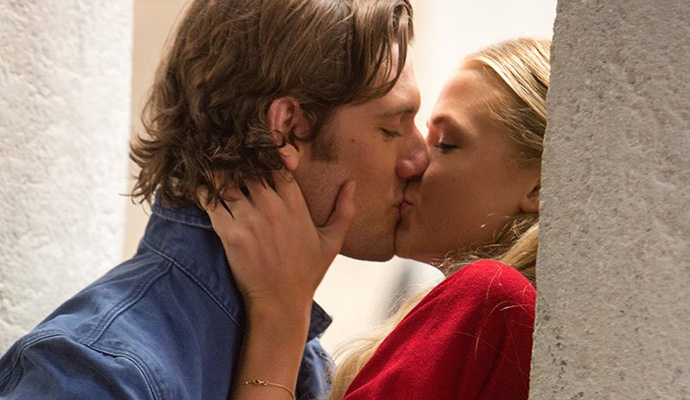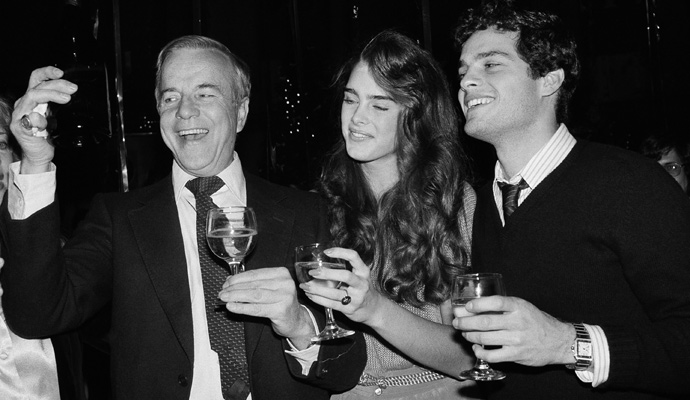Girls on Film: The sanitization of Endless Love
Shana Feste's re-imaging of the 1981 melodrama swaps out a dangerous obsession for a sympathetic young romance


A free daily email with the biggest news stories of the day – and the best features from TheWeek.com
You are now subscribed
Your newsletter sign-up was successful
This Valentine's Day marks the release of the first female-directed studio picture of the year: Shana Feste's romantic melodrama Endless Love. Gabriella Wilde and Alex Pettyfer star as "a privileged girl and a charismatic boy whose instant desire sparks a love affair made only more reckless by parents trying to keep them apart." In theory, it's a modern remake of Franco Zeffirelli's 1981 film of the same name, and by extension Scott Spencer's 1979 novel — though it bears almost no resemblance to either of them.
Spencer's novel can be an unsettling and uncomfortable read. His "hero," David Axelrod, is not a charismatic figure. He is solely, and horrifically, attached to Jade Butterfield. The most minute consequence for his obsessive actions sends him over the edge. After spending countless sleepless nights with the young Jade (with parental consent), they ask him to take a mere 30-day hiatus and give their daughter a chance to rest, which sends him into fitful delusions of grandeur that begin the novel: He will set their house on fire, then fight the fire, save the family, become a hero, and get his hiatus revoked.
The fire, of course, wipes out the house (and almost the family), severing David's ties to the clan he so desperately wants to be a part of. Admission into a psychiatric facility, and the threat of prison, aren't enough to subdue him as his obsession grows and grows. David's love is fundamentally self-centered; Jade is both his paramour and an untouchable passion he can only create elaborate and inhuman fantasies about.
The Week
Escape your echo chamber. Get the facts behind the news, plus analysis from multiple perspectives.

Sign up for The Week's Free Newsletters
From our morning news briefing to a weekly Good News Newsletter, get the best of The Week delivered directly to your inbox.
From our morning news briefing to a weekly Good News Newsletter, get the best of The Week delivered directly to your inbox.

In the remake, the protagonist's names are almost all that remains of the original story. In Feste's hands, this isn't an unsettling tale of blind obsession; it's a tragic tale of noble love. Jade (Gabriella Wilde) has been reinterpreted as a rich loner who spends all her time with her family following the death of her brother — that is, until David, the boy from the wrong side of the tracks, introduces her to the world of love and reckless abandon that she's been missing. The boy you should run away from has become, in the words of 2014's Jade Butterfield, "the kind of boy you fight for."
This Endless Love falls under cinema's ongoing treatment of blissfully perfect romance, not lustful obsession. It's all familiar, from the clandestine terrace meeting where Jade becomes a Juliet making covert plans with her Romeo, to her fevered desperation to run off to a new life. David is a convict who reminds a suffering family what happiness is, echoing this year's Labor Day. It's Fire with Fire, where the "bad" guy's hoodlum past is all about parental loyalty, and not the first seeds of a dangerous person living a life. It's Dirty Dancing, where mom has to remind dad about the importance of young passion, and Footloose, where dad has to learn that overprotectiveness won't keep him from losing another child.
That this film still bears the name Endless Love is mystifying. On its own, Feste's film is a fine melodrama about kids breaking out of their parental holds and diving head-first into love. It will be loved by the romantics who made Nicholas Sparks a household name, and hated by those who try to avoid him. Feste — who co-wrote the script with Gossip Girl producer and writer Joshua Safran — is clearly looking to celebrate cinematic love and family rather than dig into its darkness.
A free daily email with the biggest news stories of the day – and the best features from TheWeek.com
But it is not, in any way, Endless Love. This isn't a matter of creative tweaks made to turn a written narrative into a visual film, or an attempt to update a story that's more than 30 years old. This is an attempt to tell the sheep's story in the guise of a wolf. But as much as the filmmakers eschew the spirit of the original, this "remake" will have a strange effect: If you're familiar with the far darker original story, the positivity of this telling feels false, with the darkness of young love seemingly waiting to take hold.

Using just the slightest cues to the book and first film, this new Endless Love feels like a delusional fantasy dreamed up by David in the original story's telling: The perfect, moral delusion that drives him to act carelessly and without caution. David's illegal hunt for and reunion with matriarch Anne Butterfield is rewritten as a chance meeting at a library with no ill intent, before they head to a restaurant to chat about the family he misses. David never gets sent to a hospital, but he does seek out a shrink to try and deal with his loneliness. The fire once again wreaks havoc on the Butterfield house — but not by David's hand. One almost expects a final twist revealing David in an institution, locked up, and imagining this beautiful, rose-colored delusion about the dangers he caused.
There can be any number of reasons why this wholly different film still bears the name Endless Love. Perhaps it was meant to be an adaptation until Feste and Safran found themselves moving in a different direction. Perhaps this was never really about adapting the work, but just trying to link to a past film and bump up the audience count. Perhaps this is just a positive retort to Spencer's darker journey. Whatever the reason, this sanitized version of Endless Love offers a subtler kind of cautionary tale: We might celebrate the future of this Jade and David, but we’re also reminded how quicklyquickly love can turn to darkness.
Girls on Film is a weekly column focusing on women and cinema. It can be found at TheWeek.com every Friday morning. And be sure to follow the Girls on Film Twitter feed for additional femme-con.
Monika Bartyzel is a freelance writer and creator of Girls on Film, a weekly look at femme-centric film news and concerns, now appearing at TheWeek.com. Her work has been published on sites including The Atlantic, Movies.com, Moviefone, Collider, and the now-defunct Cinematical, where she was a lead writer and assignment editor.
